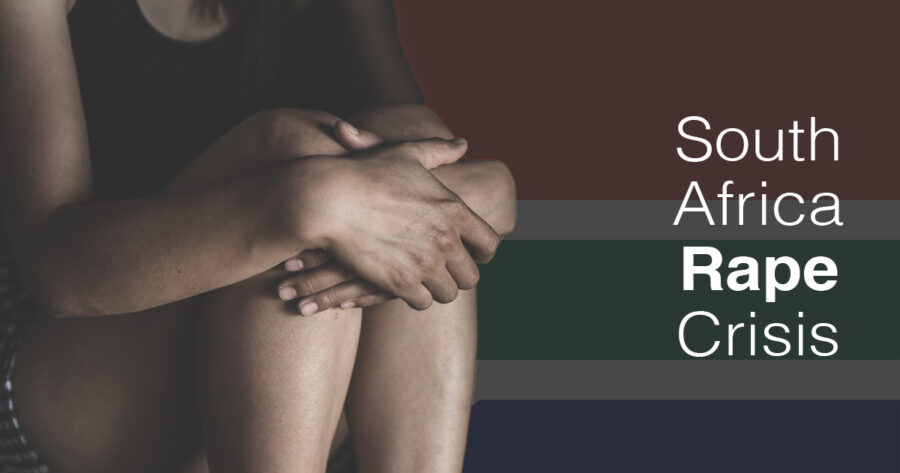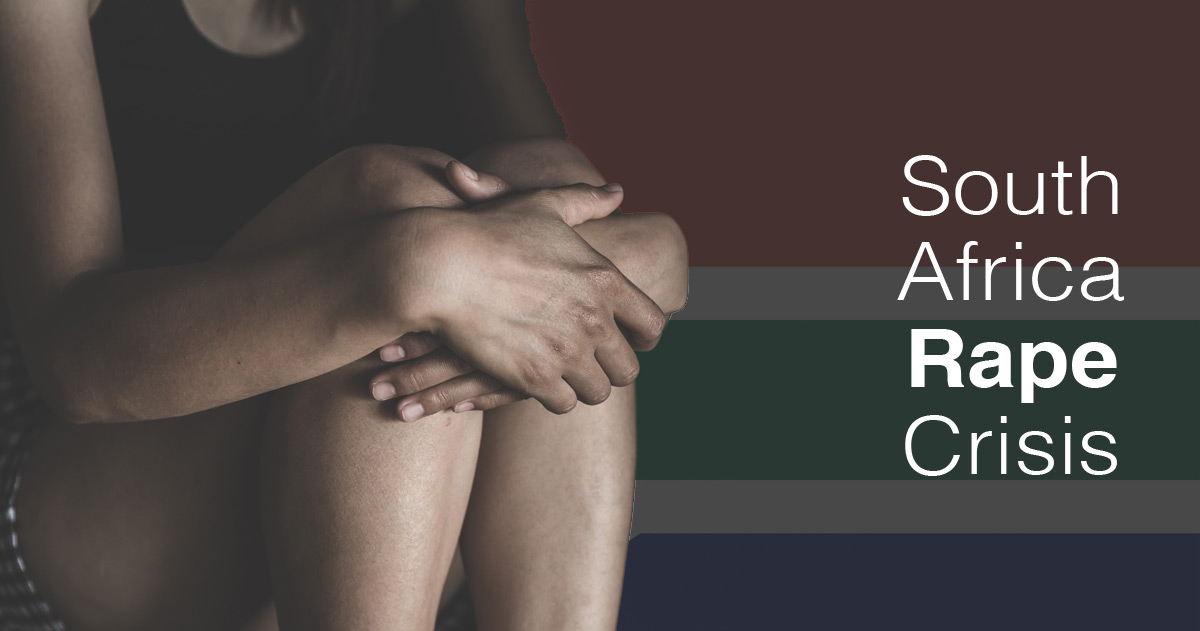
Serial Rape in South Africa Report Reveals Extent of SA Rape Crisis
An extensive and sobering report, Serial Rape in South Africa, has been published revealing the extent and brutality of the rape crisis in SA. The report, published by Afriforum, contains devastating rape statistics and has used news reports, available data, research performed by various institutions, court cases and other sources. According to the latest annual […]

An extensive and sobering report, Serial Rape in South Africa, has been published revealing the extent and brutality of the rape crisis in SA. The report, published by Afriforum, contains devastating rape statistics and has used news reports, available data, research performed by various institutions, court cases and other sources.

According to the latest annual crime statistics released by the South African Police Service (SAPS) there is an average of 116 rapes reported to the police each day. AfriForum said it compiled the report in response to the persistent rape crisis in South Africa, and the “government and justice system’s continued failings to address the matter”.
The report identifies rape and sexual assault trends, the main motives and beliefs behind the high numbers, and lists the most prolific serial rapists in South Africa’s history. It also reveals how the South African justice system has dealt with the matter, highlighting, in particular, the justice system’s failings in this regard.
South Africa regularly labelled Rape Capital of the World
According to the report: “It is commonly accepted that South Africa is one of the countries with the highest incidence of rape in the world. Over the past two decades, South Africa has been labelled the rape capital of the world on numerous occasions.
“This claim is contentious for various reasons, most of which are outlined by the fact-checking organisation Africa Check. It rightfully points out that 1) the different definitions of rape, 2) the way in which data is collected and 3) the underreporting of rape make data unreliable. This makes it difficult to come to an accurate conclusion about this phenomenon.
“Nevertheless, the frequency of the claim and the fact that South Africa consistently appears in almost every top-10 ranking in terms of rape per capita point to a major
crisis in the country – a crisis that has been around for a long time. The World Population Review recently released a worldwide comparison of female rape statistics expressed as the number of incidents per 100 000 citizens. South Africa is once again at the top of the list.” See table below:

According to Monique Taute, AfriForum’s Head of Campaigns, the South African government has failed in curbing crime, particularly violent crimes including rape. “The government’s failure to provide an adequate criminal justice system as well as displaying a lack of urgency towards implementing drastic measures to try and address crime, has resulted in the country having some of the highest levels of violent crime in the world, particularly when it comes to rape. It is noteworthy that each of the steps that have been taken by government to address the issue are merely reactive to the crisis and that while these steps might contribute to a better response, none of them would significantly contribute to lowering the levels of violence against women.”
“Over the past two decades, South Africa has been labelled “the rape capital of the world” on numerous occasions, confirming that rape is a major crisis in the country and that this crisis has been around for a long time. It is reasonable to conclude that the South African government simply does not know how to curb the issue of rape and sexual assault in the country. AfriForum’s report seeks to highlight the extent of the failings of the government and the justice system regarding this issue,” says Barend Uys, AfriForum’s Head of Research.
Marnus Kamfer, Legal and Risk Manager at AfriForum, says citizens must take precautions and measures in order to make it as difficult as possible for criminals to enter their homes. “Furthermore, citizens must make sure that they are able to easily send a distress signal to their local neighbourhood watch and/or security company for assistance if needed. Lastly, potential victims should know how to defend themselves, and must not hesitate to do so.”
AfriForum says it published this report in support of the international 16 Days of Activism against Gender-based Violence campaign. The campaign, which challenges violence against women and girls, runs every year from 25 November to 10 December.
Click here to access the report.
